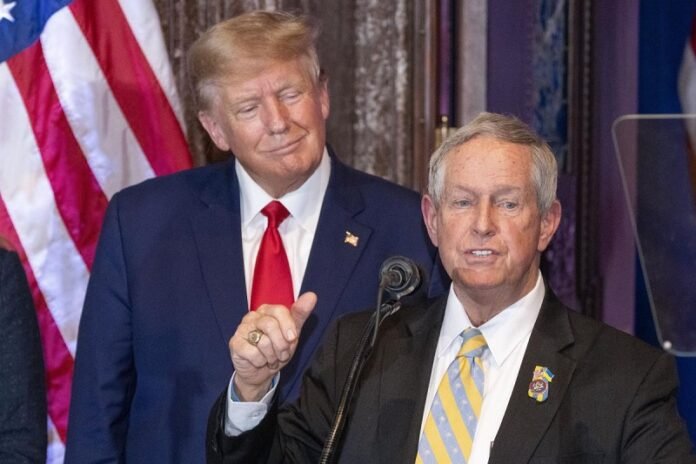In a move that could change the course of international dynamics related to the Moroccan Sahara issue, Republican Congressman John Wilson, a member of the U.S. House Foreign Affairs Committee, announced his intention to submit a legislative text to Congress to classify the Polisario Front as a “terrorist organization.” This announcement reflects changes in U.S. policy regarding the ongoing conflict in the Sahara, and it comes at a strategic moment that could alter regional and international balances in North Africa.
Through this legislative initiative, a crucial question arises: what are the implications of this move for Moroccan-American relations? Will this initiative contribute to speeding up the political resolution of the conflict, or will it further complicate the situation in the region?
Why classify it as a terrorist organization?
Congressman Wilson was not speaking in a vacuum; his statement represents a new turning point in American policy that has, in the past, supported Morocco’s autonomy initiative. In his tweet on the platform X, he insisted that “the only viable solution to resolve the Sahara issue is Morocco’s autonomy initiative under Moroccan sovereignty.” But why now? And what is prompting the United States to consider classifying the Polisario as a terrorist organization?
I agree with @SecRubio genuine autonomy under Moroccan sovereignty is the only feasible solution for the Sahara.
I will introduce legislation to designate the Polisario as terrorists.
Iran & Putin gaining a foothold in Africa via Polisario. Connect the dots: axis of aggression. https://t.co/pTEGfIlc8d
— Joe Wilson (@RepJoeWilson) April 11, 2025
Classifying the Polisario as a “terrorist organization” means that the U.S. will impose increased pressure on this separatist group, which could strengthen Morocco’s position in its quest for full sovereignty over the Sahara. However, this classification raises questions about how it could affect political negotiations, considering that the Polisario is still seen as an actor in UN-led negotiations.
Iran and Russia: A Crossroads of Interests in the Sahara
In his tweet, Wilson referred to what he called an “aggression circle,” emphasizing that Iran and Russia are seeking to expand their influence in Africa through their support for the Polisario. This is where the geopolitical dimension of the issue becomes apparent. Does this statement constitute an implicit message aimed at weakening Iran and Russia’s influence in the region? Given recent developments in international politics, Iran and Russia’s investment in the Sahara issue reflects the contest for influence in Africa.
But what are the actual relations between the Polisario, Tehran, and Moscow? Are there concrete evidence of military or political support from Iran and Russia? Or are the American statements part of a broader context aimed at limiting anti-Western influence in Africa?
Moroccan Responses: Confirmation of a Unified Position
On the other hand, Wilson’s announcement comes at a time when Morocco continues to reaffirm its position on the autonomy initiative. The American congressman also added to his tweet a link to a statement from Lisa Kenna, the U.S. State Department’s political affairs official, who indicated that the UN special envoy for the Sahara, Stefan de Mistura, reiterated that Morocco’s autonomy initiative under Moroccan sovereignty is the only viable solution to resolve the Sahara issue.
This U.S. clarification reflects some convergence with the Moroccan position. But the question remains: will this convergence translate into concrete actions on the ground? Will this statement strengthen Morocco’s position with the United Nations and other major powers?
Is it time to close the Sahara issue?
The submission of this legislative proposal to the U.S. Congress marks a turning point in the handling of the Sahara issue. Is this the beginning of more significant measures that could lead to a political resolution? Or is it simply an escalation that will add more layers of complexity to the conflict?
As the United States considers classifying the Polisario as a terrorist organization, the fundamental question remains: will this initiative speed up the closure of the Sahara issue, or will it create further divisions and transformations in regional and international relations?
Open Questions
-
Will this U.S. initiative strengthen the peaceful solution to the Sahara issue, or will it lead to a new escalation?
-
What impact will this classification have on the position of the United Nations and European Union countries regarding the Sahara?
-
Can the United States strengthen Morocco’s position against the threat of terrorism posed by extremist groups in the region?
Classifying the Polisario as a terrorist organization by the United States represents an influential move on both the political and geopolitical levels. However, the extent of the impact of this initiative on lasting solutions to the Sahara conflict remains tied to delicate balances at the level of international and regional relations.


